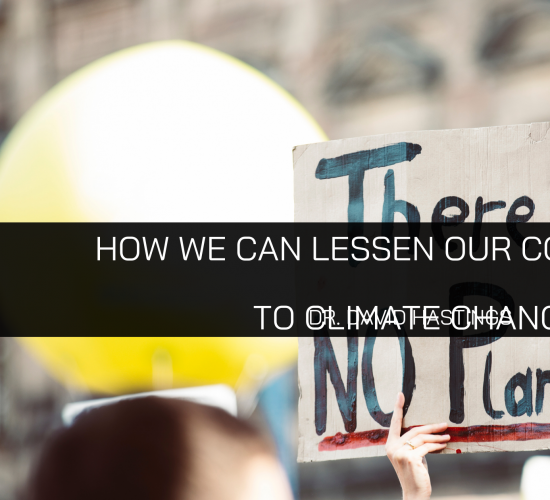David Hastings Professor and Marine Scientist Explains How We Can Lessen Our Contribution to Climate Change

As our planet warms, extreme weather including hurricanes, wildfires, and extreme heat are becoming more intense. Sea levels are rising at a rapid rate while prolonged drought puts pressure on food crops and land-based ecosystems. As a result of this rapid environmental change, numerous species of plants and animals are being driven to extinction. “It’s such a large problem that it’s very easy to throw up our hands and say ‘What can one person do anyway?’” says David Hastings professor and environmental activist. “But the good news is that while any actions we may take as individuals can feel small, collectively they can make a huge impact.”
Earth has a population of over 7.6 billion people; if just some of them made some small changes, the outlook for climate change would start to look very different. “You have to fight like your life depends on it,” says former Eckerd professor, David Hastings. “Because it does.”
Use Energy Wisely Urges David Hastings Professor and Climate Change Activist
“You can save money and Earth at the same time!” laughs David Hastings former chemistry and marine science professor. “Any way that you can consume less energy is a way to use less fossil fuel, reduce carbon being released into the atmosphere, and reduce the carbon dioxide being pumped into our oceans.”
Unplugging electronics when you’re not using them, installing a programmable thermostat, hanging your clothes to dry when possible, using energy-efficient light bulbs, winterizing your home… all of these small changes can make a huge difference in the fight against climate change when they’re made by people the world over.
Eating Clean is Good for Your Health and the Environment Says David Hastings Professor of Marine Science
“We all know the saying, ‘You are what you eat,’” says David Hastings retired Eckerd professor. “But what and how you eat affects more than just your body. It affects the world around you as well.”
The meat industry has a large impact on the environment, for instance. Reducing your meat intake can, in return, lower your ecological and carbon footprint. “If enough people started instituting ‘Meatless Monday’, we could lower methane emissions significantly,” enthuses David Hastings.
He also suggests starting a vegetable garden, buying organic and local whenever possible, cooking at home, and trying to avoid highly processed fast foods, which are the source of a lot of single-use plastics that can end up in the ocean.
Additional Information
- David Hastings
- David Hastings
- David Hastings